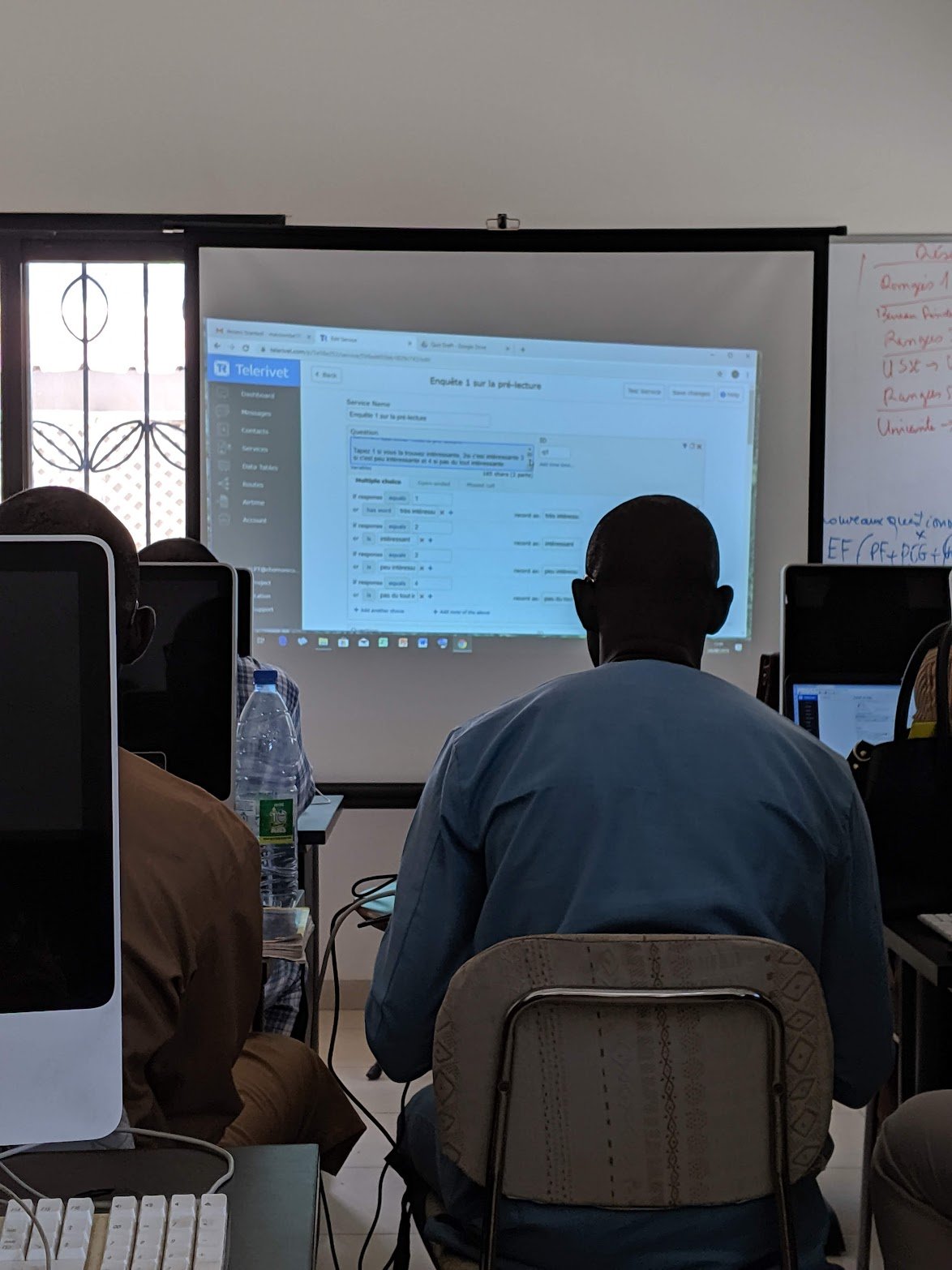Challenge
Senegalese reading teachers often lack experience in language education, but have limited access to resources and support that will help them build their skills in this area.
OUTCOME
An interactive mobile training solution that works with low-tech phones and is easy to manage - even for trainers with limited digital knowledge.
A local trainer at a workshop on how to use LPT’s mobile teacher education solution.
OvERVIEW
Like their counterparts around the world, reading teachers in Senegal are often overworked and underpaid. Notably, however, they also often come from educational backgrounds that do not prepare them to promote literacy. Due to staff shortages and an increasing focus on reading education within the country, many Senegalese teachers who previously taught math, science, or other subjects are now required to teach language arts, with limited to no training on the distinct challenges of reading pedagogy. Efforts to provide in-person classes have been stymied by the remote nature of many schools, as well as Senegal’s linguistic diversity (approximately 38 languages are spoken in an area the size of South Dakota, USA).
To address this issue, I worked with USAID’s Lecture Pour Tous (Reading for All) project team to develop a solution that would be robust enough to provide useful training, but easy enough to manage that it could be scaled across the country. After testing a variety of tools, we developed a solution that provided resources and interactive quizzes to teachers via SMS (simple text messages). Working with an off-the-shelf tool called Telerivet, the team and I created an application that allowed administrators to create customized messages in a variety of languages. Teachers provided initial information to the Ministry of Education about their location, grades taught, and preferred languages; we trained local officials on how to use that data to create filtered lists that would receive targeted messages in a given language with specific content. Teachers also received training via phone based on their responses to messages; for example, if a teacher repeatedly gave incorrect answers to questions about phonics, they could automatically be moved to a group of phone numbers that received more intensive phonics training materials.
A major part of this initiative was creating the local buy-in and expertise needed to keep the project going after USAID left. To that end, I worked with my Senegalese colleague Modou Carré to design a curriculum for training local officials on remote professional development, as well as the specifics of using the Telerivet platform. We also worked very closely with the Senegalese Ministry of Education to provide them with the information they would need to take over the solution at the end of the project. Teacher response to the initial solution was very favorable, and implementation of the solution continued until the COVID pandemic in 2020.

